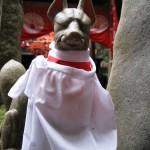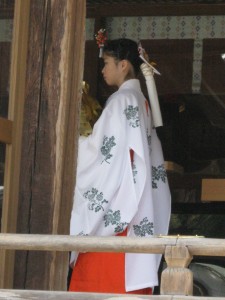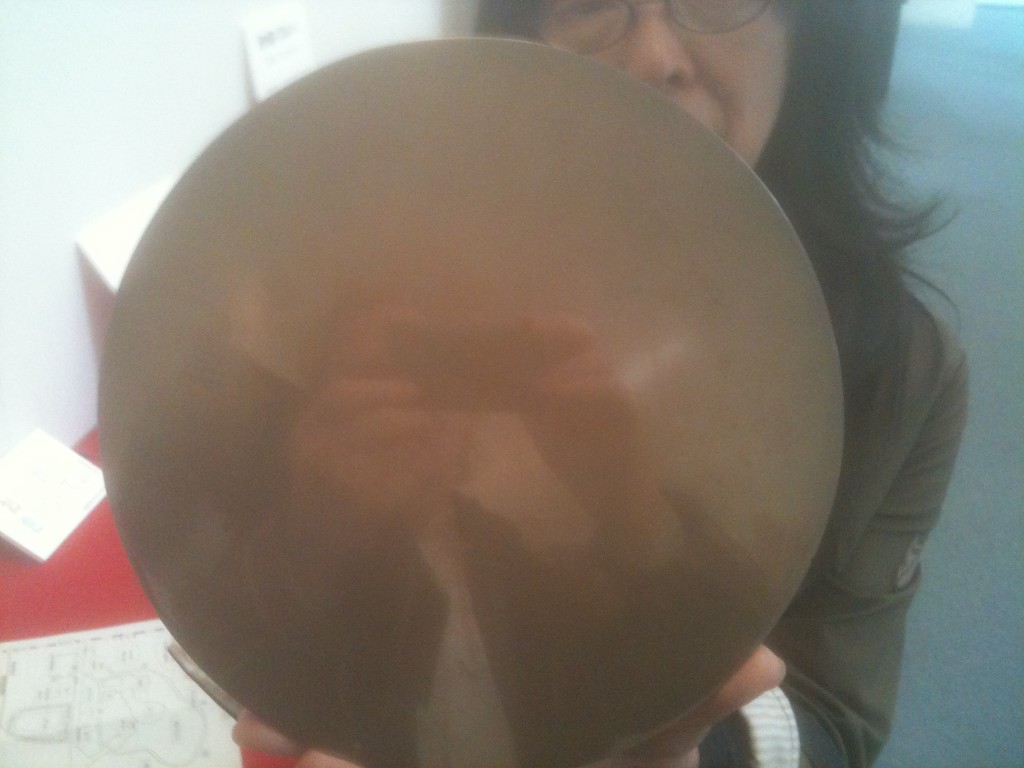 A British observer in the early 1860s recorded an interesting encounter in his diary. He and some other foreigners were traveling though the streets of Edo (Tôkyô). As they neared a public bath, someone inside the bath noticed that exotic foreigners were in the vicinity and let the other bathers know. They all came running out of the bath house, completely naked, to look at the British travelers, who no doubt did some staring of their own. According to the diary: “Men and women were all bathing together. They all came running out of the bath hut to gawk at us as we passed by. Not a single one made any attempt to cover up. They were like Adam and Eve before the fall, appearing to us just as they had been born”
A British observer in the early 1860s recorded an interesting encounter in his diary. He and some other foreigners were traveling though the streets of Edo (Tôkyô). As they neared a public bath, someone inside the bath noticed that exotic foreigners were in the vicinity and let the other bathers know. They all came running out of the bath house, completely naked, to look at the British travelers, who no doubt did some staring of their own. According to the diary: “Men and women were all bathing together. They all came running out of the bath hut to gawk at us as we passed by. Not a single one made any attempt to cover up. They were like Adam and Eve before the fall, appearing to us just as they had been born”
Running out naked like Adam and Eve shows a wonderful ‘innocence’ that can still be felt I think in contemporary society with its cult of cuteness and childlike ignorance of the ways of the world. For anyone from Britain, where cynicism runs rampant, it is a striking phenomenon. I can’t imagine an adult in Britain saying that her chief ambition is to go to Disneyland. Of course you could say there is a downside to the trusting innocence… the almost blind acceptance of authority.

In searching for the roots of this cultural characteristic, one place to look is surely Shinto which since ancient times has placed an emphasis on sincerity and purity. Kamo no Mabuchi (1697-1769), a Shinto scholar, is only one of many who has stressed the importance of makoto (a sincere heart) as the ideal virtue. Makoto is linked too with the samurai, and the Shinsengumi famously adopted the word as their slogan. As sincerity was stressed too in Confucianism, it became an important part of samurai thinking.
The influence of Shinto on Zen has not been much written about, but the simplicity, naturalness and aversion to rationality (and hence cynicism) was already a part of Japanese thinking before Zen arrived. Striving to be spiritually pure could be seen as necessarily being free of cynicism. This is abetted by the notion that humans as children of the kami have natural goodness and purity. Since cynicism supposes an ability to distance oneself, it is clearly out of place.
One of the teachings of Shinto is that one should keep one’s heart/mind clean as a bright mirror, pure and shining. The mirror reflects everything faithfully and captures the pure truth. It has no place for cynicism. Writing in 1339, Chikafusa Kitabatake noted that, ‘The mirror hides nothing. It shines without a selfish mind… The mirror is the source of honesty… It points out the fairness and impartiality of the divine will.’
Japanese innocence is nothing to be cynical about.

Holding up a bronze mirror to reflect the purity of soul

Thank you for an interesting post. It brought this to mind:
“The cynicism you have is not your real soul.”—Yoko Ono